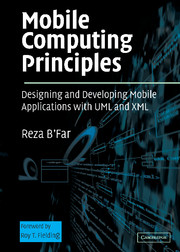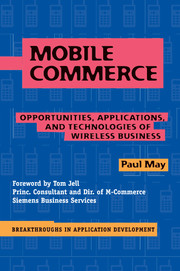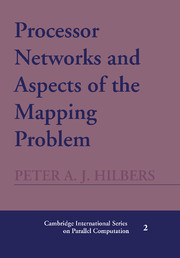Mobile Computing Principles
Written to address the technical concerns faced by mobile developers, this book explores the differences between mobile and stationary applications and the architectural and software development concepts needed to build mobile applications. Reza B'Far guides the developer through the development process, using UML from design to implementation. He focuses on general concepts, while using platforms as examples or as possible tools. After introducing UML, XML, and the derivative tools necessary for developing mobile software applications, B'Far demonstrates how to build user interfaces for mobile applications.
- Comprehensive
- Cutting edge
- Gives general concepts but still practical
Product details
November 2004Hardback
9780521817332
878 pages
254 × 178 × 46 mm
1.72kg
150 b/w illus.
Available
Table of Contents
- Part I. Introductions to the Main Topics:1. Introduction to mobile computing
- 2. Introduction to mobile development frameworks and tools
- 3. XML: the document and meta-data format for mobile computing
- 4. Introduction to UML
- Part II. Device Independent and Multi-Channel User Interface Development Using UML:
- 5. Generic user interface development
- 6. Developing mobile GUIs
- 7. Voice user Interfaces and mobile applications
- 8. Multi-channel and multi-modal user interfaces
- Part III. Additional Dimensions of Mobile Application Development:
- 9. Mobile agents and peer-to-peer architectures for mobile computing
- 10. Wireless connectivity and mobile applications
- 11. Synchronization and replication of mobile data
- 12. Mobility and location information
- 13. Active transactions
- 14. Mobile security
- Part IV. Putting the Project Together:
- 15. The mobile development process
- 16. Architecture, design, and technology selection
- 17. Mobile application implementation hurdles
- 18. Testing
- 19. A case study.





